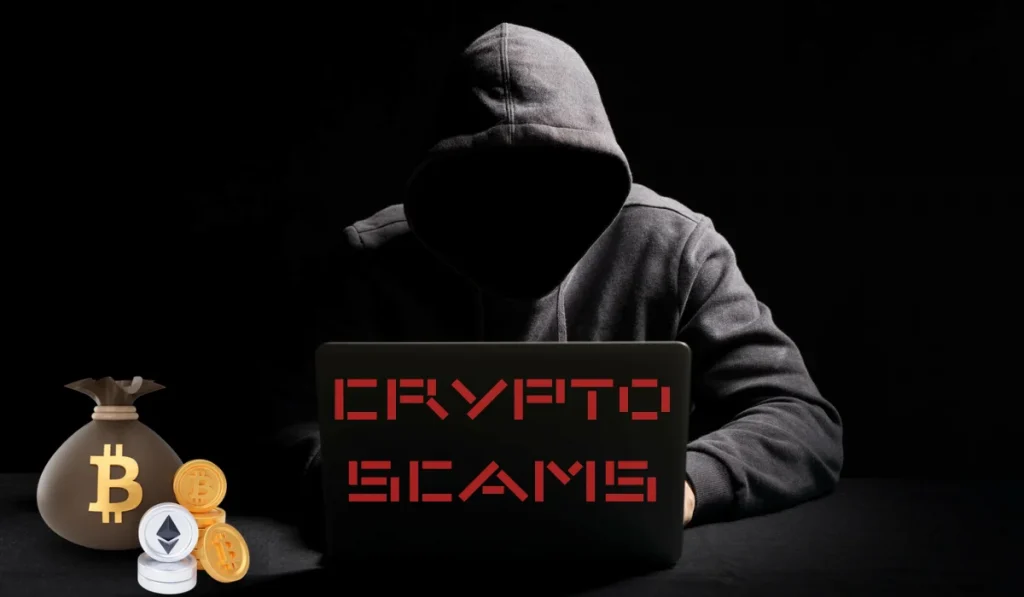As the cryptocurrency sector continues to grow and evolve day after day, one thing follows it like a shadow – the different ways in which malicious actors scam unsuspecting crypto users.
Between 2021 and 2022, crypto scammers managed to steal around $20 billion by defrauding users. Although crypto-related cybercrime has fallen drastically in 2023, concerns remain as the industry enters the new year.
This article highlights some of the most common cryptocurrency scams, ways in which you could avoid them, and what you can do if you fall victim to one.
Common Types of Crypto Scams and How to Identify Them
Although cryptocurrencies are relatively new, many of the scamming techniques used are variations of existing ones. Here are some cryptocurrency scams that are deemed to be the most common and lethal:

Phishing Scams
This is a technique where scammers go on a hunt for confidential information and trick victims into handing it over to them. It involves sending a malicious email with a link from an alleged crypto service that you may have an account with.
The unsuspecting link opens up a page that looks similar to a legitimate crypto platform and will ask you to enter the login credentials to the wallet you own, or else provide personal or payment information that can be used to defraud you.
Giveaway Scams
It’s always exciting to win free money but falling victim to fake giveaways and losing all your crypto is not fun.
In this technique, the attackers create fake profiles on Twitter or other social media platforms impersonating popular figures, even using profile pictures that match the same one the celebrity was using at the time.
They then repost a post from the famous person, adding that they are giving away free tokens to anyone who participates in the giveaway. A famous case of the scam happened in the UK when an unfortunate victim lost $400,000 worth of crypto after trusting a fake giveaway by someone posing as Elon Musk.
Investment Scams
This technique involves one party promising great returns or business opportunities in exchange for sending them funds in crypto. The scammers tell the victims that they only need to invest a small amount and they will see instant gains reflected in their wallet.
The scam will operate a platform for several months that encourages victims to make deposits into an investment pool in exchange for small yields.
Once the attackers have collected enough money, they conduct a rug pull, wherein investors won’t be able to withdraw any money from their accounts as the platform would have stopped working.
Extortion Scams
Extortion scam occurs when an attacker sends their victim messages threatening to release information that is embarrassing or incriminating to them. The scammer who may or may not possess real contents will extort victims by blackmailing them unless a certain amount of crypto is paid.
The attackers will provide a crypto address, demanding the token be sent to it within a deadline or else the blackmailed information will be made public. They attempt to coerce victims by contacting them via personal email or telephone numbers.
Related Article: Crypto Trading Made Easy: 9 Tips For Choosing The Right Crypto Exchange
How To Avoid Crypto Scams?
Here are some practices you could follow that will help you from falling victim to crypto scams:
Never share private keys to your wallet
You should always be cautious when interacting with trusted third-party crypto service providers such as wallets or exchanges and refrain from sharing sensitive information.
Also, never share personal financial information or private keys to your crypto wallet with anyone, no matter how close they are to you.
Confirm website URLs and domain names
Make it a habit to check and double-check any website names or social media profiles to ensure that you are not sending funds to a scammer posing as a legitimate person or business.
You can verify the authenticity of a website or account by checking for spelling mistakes in their names, and if applicable, whether the profile is verified. You could even send a message to the official channel of the crypto service and ask them if the account or website in question is legitimate.
Do not trust offers that seem too good to be true
If someone promises you an investment opportunity that guarantees over-the-top-sounding returns, then it’s most likely to be a scam. Cryptocurrencies offer a great investment opportunity but no one can guarantee instant returns.
Secure your wallets with 2FA
Most crypto exchanges and wallet services now give you the option to secure your account with two-factor authentication. This extra layer of security protects the funds in your wallet and also your credentials in the event you lose access to one of your trusted devices.
Always confirm before sending funds
You should only send crypto to wallets that you know or owned by a trusted third party. Before making the transaction, double-check to confirm whether the other person or business is legitimate.
How to Report Crypto Scams?
If you believe that you were preyed on by crypto scammers, then here are the parties to whom you can report the incident:
Law Enforcement
Share all information that you know about the cryptocurrency scam, including the scammer, the site or social media profile they contacted you through, or any details regarding the wallet you sent the funds.
Bank
If your card or bank account information has been compromised, then it is vital to let your bank know of the incident. Block your bank account immediately if you think that the scammer has your financial information.
Crypto Exchange
You can also report the incident to the crypto exchange that was used to conduct the transaction. Make sure to provide the wallet address of the scammer so that agencies can blacklist them.
Related Article: What Is The Difference Between Bitcoin And Fiat Currencies?
Conclusion
Cryptocurrency scams are often time irreversible, largely due to the nature of blockchain technology. There is less chance for you to be able to retrieve lost tokens and it will also be hard to track down the owner of the scam wallet.
But by taking precautions and reporting incidents, you can help protect others from falling into the same trap. Remember to always stay alert and follow the tips suggested in this article to remain one step ahead of the scammers.
Take care.
